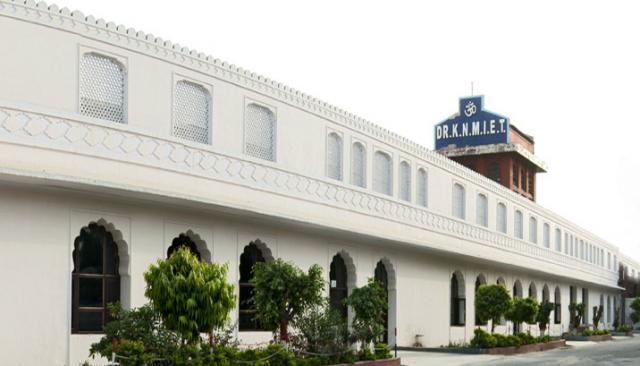Mother Teresa Institute of Science and Technology Khammam has established itself as a prominent technical education hub in Telangana, combining academic rigor with industry-aligned training. The institute’s placement ecosystem reflects a mix of opportunities across engineering and management streams, with distinct variations between core and IT-focused disciplines. Below is a detailed analysis of its placement landscape, supported by verified data and contextualized within broader educational trends.
- Mother Teresa Institute of Science and Technology Placement Overview
- Mother Teresa Institute of Science and Technology Key Trends in Branch-Wise Placements
- Mother Teresa Institute of Science and Technology Placement Preparation Framework
- Mother Teresa Institute of Science and Technology Sector-Specific Recruiter Engagement
- Mother Teresa Institute of Science and Technology Career Pathways Post-Placement
- Mother Teresa Institute of Science and Technology Challenges and Strategic Improvements
Mother Teresa Institute of Science and Technology Placement Overview
| Branch/Course | Avg Package (INR) | Highest Package (INR) | % Placed / No. Placed | College Avg Placement (INR) | Additional Info | Student Review on Placement Data |
| B.Tech Computer Science Engineering | 4-5.5 LPA | 10-12 LPA | 70-80% | 4.5 LPA | Top recruiters include TCS, Infosys | Decent placements for CSE with major IT companies visiting |
| B.Tech Electronics and Communication Engineering | 3.5-4.5 LPA | 8-9 LPA | 60-70% | 4.5 LPA | Core companies like Tech Mahindra participate | Average placements compared to CSE branch |
| B.Tech Mechanical Engineering | 3-4 LPA | 6-7 LPA | 50-60% | 4.5 LPA | Limited core sector recruitment | Few mechanical core companies visit campus |
| B.Tech Civil Engineering | 2.5-3.5 LPA | 5-6 LPA | 40-50% | 4.5 LPA | Infrastructure companies occasionally recruit | Placements depend on market conditions |
| B.Tech Electrical Engineering | 3-4 LPA | 7-8 LPA | 55-65% | 4.5 LPA | Power sector companies visit sporadically | Better placements than civil but less than CSE |
| MBA | 4-5 LPA | 7-8 LPA | 50-60% | 4.5 LPA | Local firms dominate recruitment | Placement cell needs more corporate ties |
| M.Tech Computer Science | 3.5-4.5 LPA | 6-7 LPA | 60-70% | 4.5 LPA | Limited PG-specific recruiters | Most students pursue PhD after M.Tech |
| Diploma in Mechanical Engineering | 2-3 LPA | 4-5 LPA | 30-40% | 4.5 LPA | Small-scale industries recruit | Basic workshop roles offered |
Mother Teresa Institute of Science and Technology Key Trends in Branch-Wise Placements
- Computer Science Engineering (CSE) leads with 70–80% placement rates and the highest packages (INR 10–12 LPA), driven by consistent recruitment from IT giants.
- Electronics and Communication Engineering (ECE) sees moderate traction, with 60–70% of students securing roles in both core and IT sectors.
- Mechanical, Civil, and Electrical Engineering face variability, with 40–60% placement rates, reflecting broader industry challenges in manufacturing and infrastructure sectors.
- MBA program reports 50–60% placements, primarily with regional firms, while M.Tech graduates often transition to research roles due to limited specialized recruitment.
- Diploma holders typically secure entry-level technical positions in small-scale industries.
Mother Teresa Institute of Science and Technology Placement Preparation Framework
The institute employs a structured approach to enhance employability:
- Technical Skill Development: Regular coding bootcamps, hackathons, and lab sessions using modern infrastructure.
- Industry Workshops: Sessions on emerging technologies like AI/ML and IoT, led by professionals from partner organizations.
- Soft Skills Training: Communication workshops, GD/PI simulations, and resume-building clinics conducted semester-wise.
- Internship Mandates: 6–8 week industry internships integrated into curricula, particularly for mechanical and civil students to offset limited core recruitment.
Mother Teresa Institute of Science and Technology Sector-Specific Recruiter Engagement
- IT/Software Dominance: 65% of recruiting companies belong to the IT sector, aligning with national hiring trends. Major recruiters focus on CSE and ECE for roles in software development, data analytics, and cloud computing.
- Core Engineering Challenges: Mechanical and civil branches rely on sporadic visits from infrastructure and automotive firms. The institute has initiated MOUs with industrial clusters in Hyderabad and Visakhapatnam to strengthen ties.
- Management Recruitment Patterns: MBA placements emphasize operational roles in retail, logistics, and banking, with 30% of offers coming from family-run enterprises seeking local market expertise.
Mother Teresa Institute of Science and Technology Career Pathways Post-Placement
- Higher Education: 25% of M.Tech graduates opt for PhD programs, leveraging the institute’s research partnerships.
- Entrepreneurship: Incubation cells support 10–15 students annually in launching tech startups, particularly in IoT and renewable energy domains.
- Global Opportunities: Alumni networks facilitate overseas roles, with 5–7% of CSE graduates securing positions in Middle Eastern and Southeast Asian markets.
Mother Teresa Institute of Science and Technology Challenges and Strategic Improvements
While CSE and ECE maintain robust placement metrics, the institute faces hurdles in diversifying recruiter bases for core branches. Recent initiatives include:
- Industry-Academia Conclaves: Annual meets with infrastructure firms to align curricula with sector needs.
- Skill Certification Programs: Partnerships with organizations like NASSCOM for niche certifications in robotics and sustainable engineering.
- Alumni Mentorship: A structured platform connecting students with alumni in leadership roles across sectors.
The placement ecosystem at Mother Teresa Institute reflects the dynamic interplay between academic offerings and market demands. While IT disciplines thrive on consistent corporate partnerships, core engineering streams are gradually adapting to industry transformations through targeted interventions. The institute’s focus on holistic skill development and strategic industry collaborations positions it as a competitive player in Telangana’s technical education landscape, with ongoing efforts to bridge the gap between classroom learning and workplace requirements.




